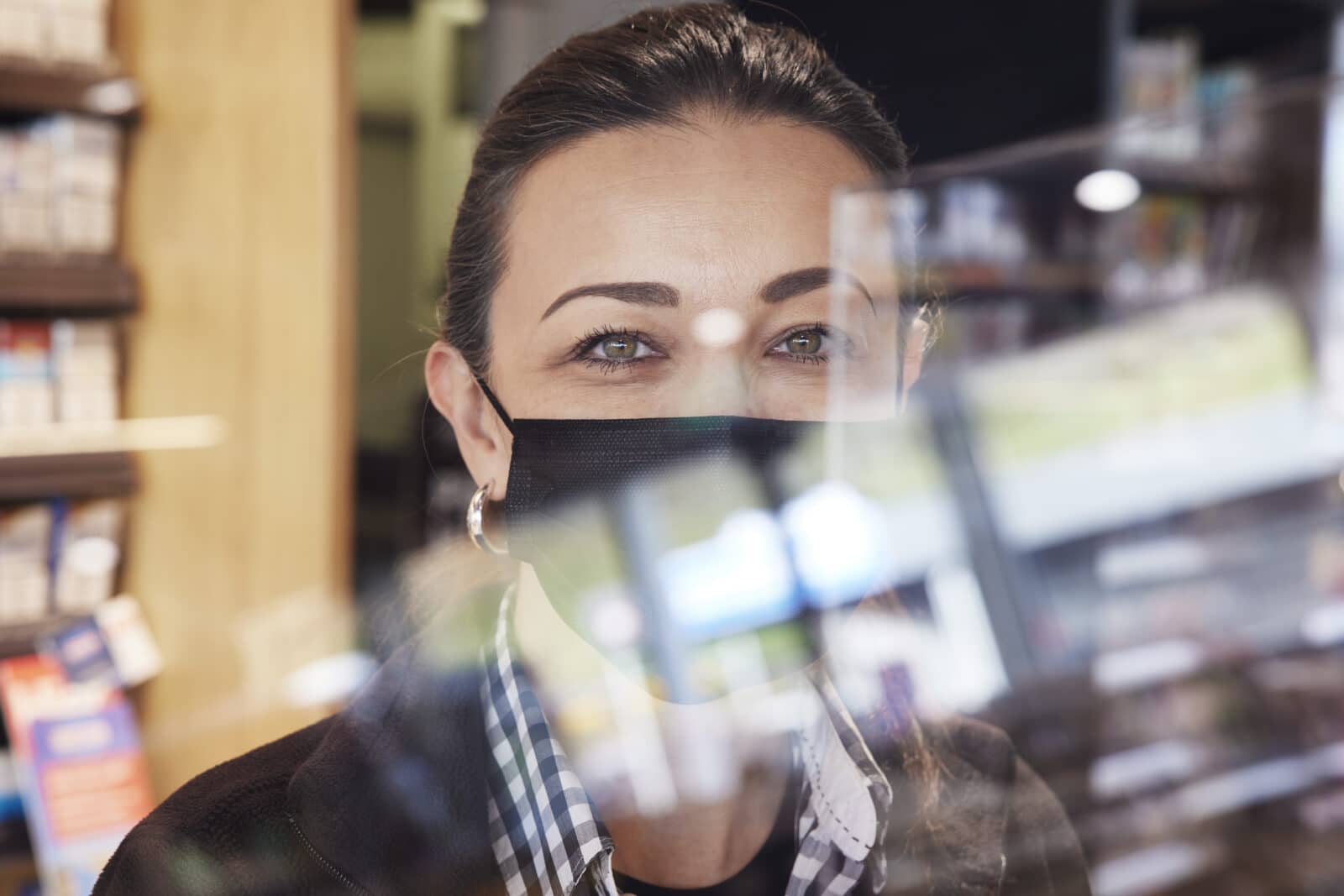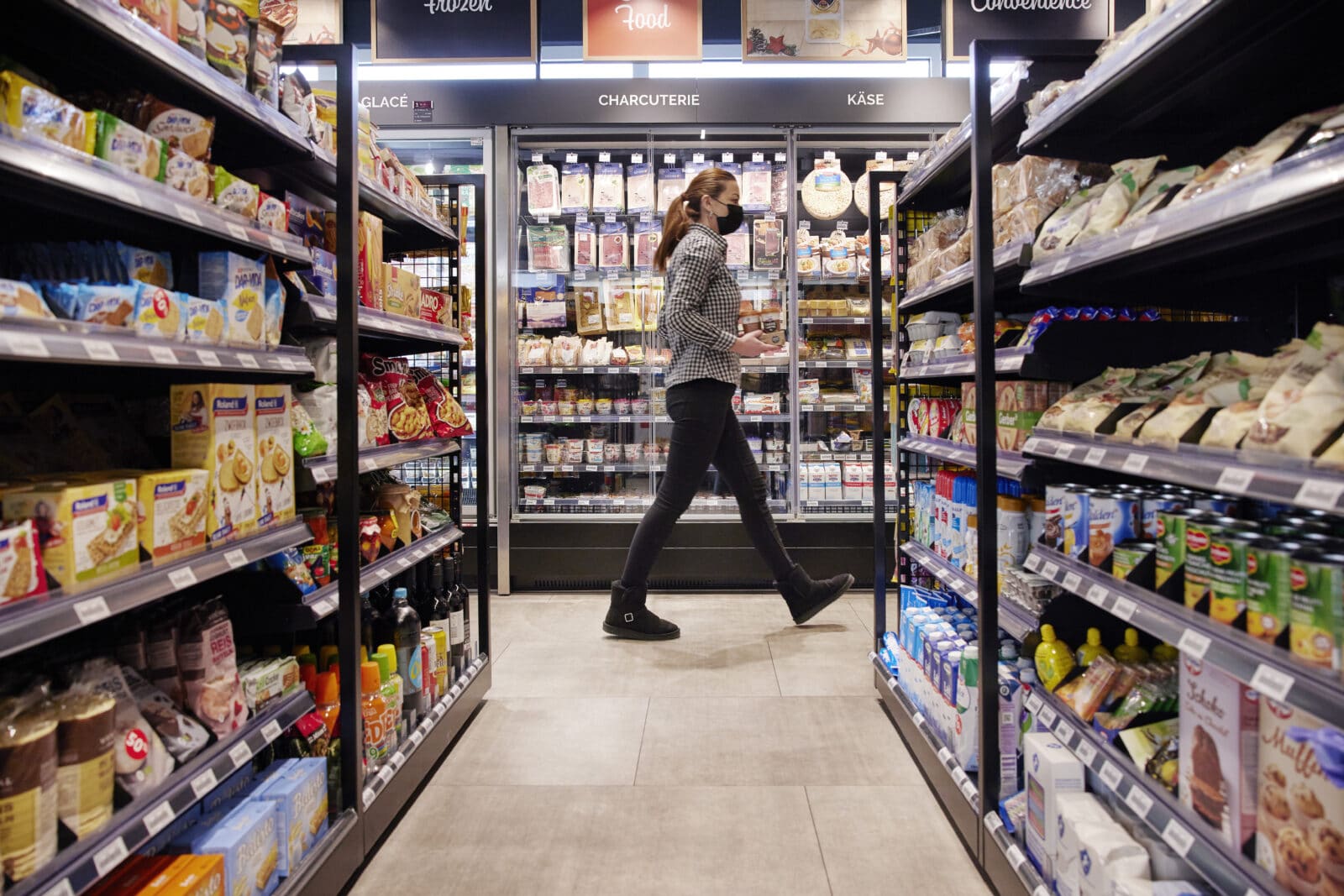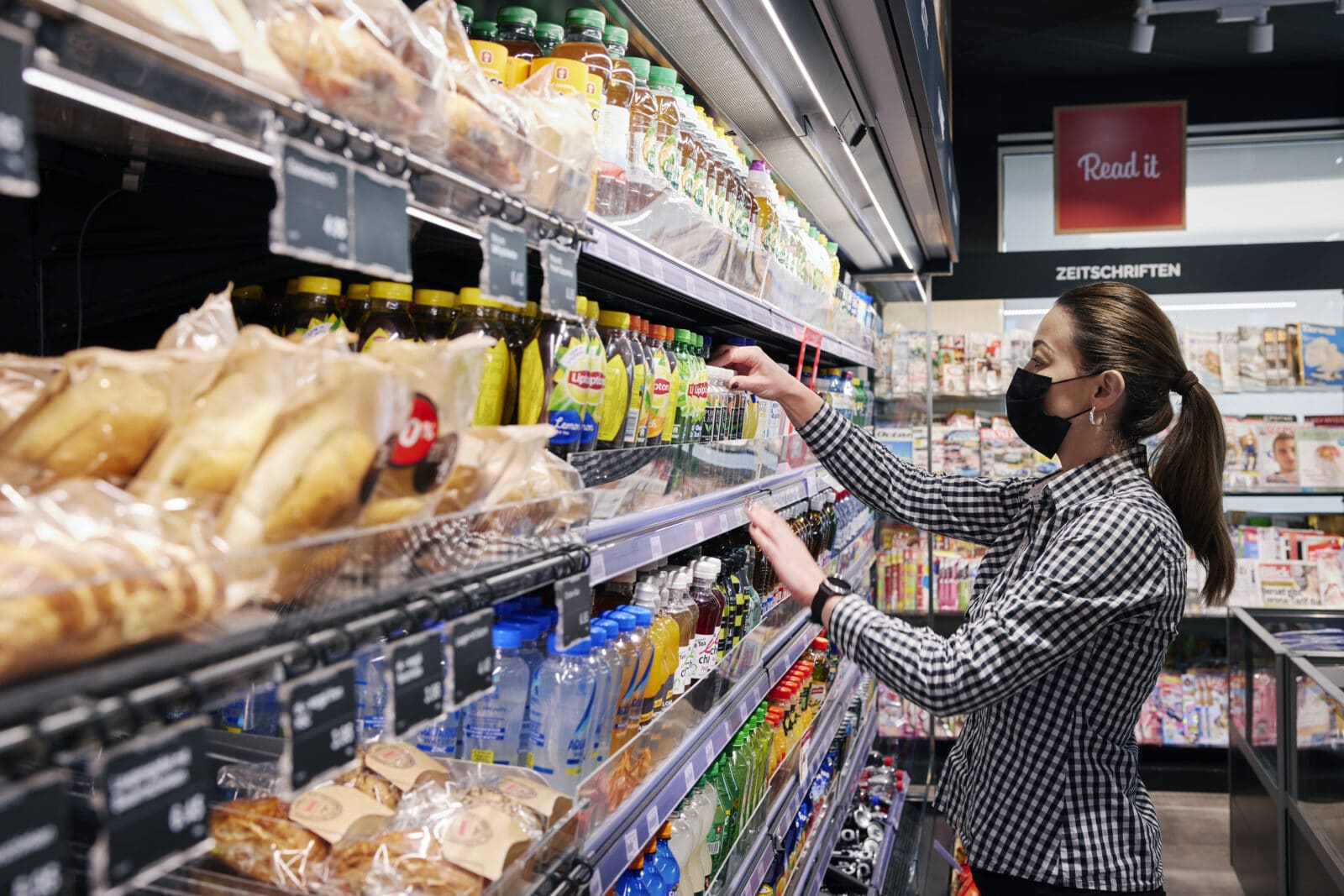The COVID-19 pandemic has been a massive challenge for the Valora network’s 15,000 employees. Valora would therefore like to thank all of its staff – everybody working in sales, in production, at the office, from home or on short-time working – for their solidarity and the unbelievable commitment they showed in 2020. The company made consistent efforts to vigorously support its employees and all of its franchise and agency partners, whether through protective measures, advice or financial aid. This enabled everyone to make a major contribution to providing the public with basic supplies.
A special thank you goes to our sales staff who were there on the front line for our customers during the lockdown and other restrictive measures. These employees include, for example Ivana Dogas, who has been at Valora since 2007 and has managed the Tamoil service station avec store in Wettingen for over two years. In the following interview, she shares how her working day changed during the COVID-19 crisis.
Ms Dogas, how was the spring lockdown experience for you?
It was a really tough time. The hardest thing for me personally was combining my working and private life, because after work I had to make sure that the children were learning from their home schooling. The challenge from a working perspective was how to deal with our customers.

How did customer behaviour change?
People reacted very differently to the crisis. Many people didn’t take the virus seriously at the start, then they became more fearful. Some people responded aggressively to the lack of social contact during the crisis. Sometimes, we found ourselves caught in the middle and we always had to remain neutral.
How did the change in customer behaviour impact your work?
Our customers demanded extremely high standards of hygiene, even going beyond the recommendations issued by the Federal Office of Public Health. For example, customers opted mainly for cashless payments during the crisis. However, as our contactless-enabled terminals were not delivered until autumn, they first still had to enter their PIN numbers. This resulted in some customers refusing to pay. We also had other customers who didn’t want to hand us their purchases for scanning because they were worried about infection.

How did you respond to those situations?
We always started by trying to engage the customer in conversation to lessen their anxiety. If that didn’t work, we provided them with gloves for protection from the terminal and we allowed them to scan the items themselves. Our aim was always the same – to meet our customers’ wishes as far as possible.
“People reacted very differently to the crisis.”
Were there any other challenges apart from those related to hygiene?
One big challenge was people gathering near the entrance. Our avec store became something of a social venue as the restaurants and bars were closed. It wasn’t always easy to tell people that our entrance area was not somewhere for them to hang out.
Were you ever worried about your own health?
I didn’t worry about myself so much, I was more worried about infecting my loved ones. We have one at-risk person in the family. I knew that I posed a risk to that person because of all the customer contact I was having. That’s why I avoided any direct contact with that person for as long as possible.

How did you protect yourself, your employees and the customers?
We washed and disinfected our hands regularly, wore gloves and covered our mouths. We also cleaned the shelves regularly and put up a plexiglass screen between us and the customers. We also complied with the official instructions. For example, we made sure we never exceeded the maximum number of people allowed in the avec store and we marked the floor to show customers how to maintain social distancing.
“Many customers just stopped by for a chat.”
What support did Valora provide?
We received regular updates about the situation and we always had sufficient quantities of the equipment and materials we needed to implement the measures necessary to protect everyone. However, the most important thing for us throughout the crisis was the consistent encouragement from Valora. Our work was really appreciated.
Did you have any positive experiences?
We felt we were performing an important service for many people. Many of our customers didn’t just come to buy their groceries, they were also looking for some social contact. So we had a lot of customers coming during the off-peak times as they knew we would have time for a chat.
Did you experience any other effects of the COVID-19 crisis as a provider of basic supplies?
Our customer base has grown in recent months – especially among the older generation. This was because people were avoiding the big shops where there were many more people. Something else that we noticed was people doing a daily shop as opposed to buying in bulk, so they could leave the house more often. At the same time, I’ve never seen so many full shopping baskets.
Did you also benefit personally from having regular contact with people through your job?
Yes, I was very pleased to be able to go to work. Especially as we had such good morale among the staff and we were always swapping stories about our experiences and concerns. I also enjoy being with people. I would have found it very hard to stay at home all the time.
What lessons did you learn personally from this time?
New regular customers is one, as we were always there for our new customers as well as our usual ones during the crisis. There is also the assurance that we’re ready. The crisis caught us off-guard when it first broke. No-one really believed the virus would come to Switzerland. Nevertheless, we adapted quickly.
This article appeared for the first time on 10 August 2020 and was updated on 24 February 2021.
Photos and video: Noë Flum.




